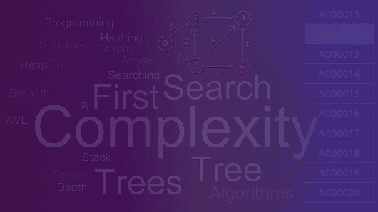Course Description
This course is designed to enhance the knowledge of students in Java programming, focusing on advanced topics such as exceptions, data structures such as lists and files, recursion, and the development of graphical user interfaces using JavaFX. It aims to provide practical skills that enable seamless error handling and more efficient data management and manipulation in software development.
What Students Will Learn
- Effective strategies for graceful error handling through the use of exceptions.
- Techniques for file manipulation, including reading and writing simple text files in Java.
- Skills to work with array-based and link-based data structures such as ArrayLists and LinkedLists.
- Fundamentals of recursion to simplify repetitive tasks.
- How to build and manage basic GUIs with JavaFX, enhancing user interface design.
Course Prerequisites
Students are expected to have completed an introductory course in Java programming, specifically focusing on object-oriented programming and algorithms. Familiarity with Java programming basics is essential for participating in this course.
Course Coverage
- Handling exceptions to improve program robustness.
- File I/O operations to manage data storage and processing.
- Utilization of advanced data structures for optimized data handling.
- Exploring recursion to handle repetitive processes more efficiently.
- Creation of interactive user interfaces using JavaFX.
Who This Course Is For
This course is ideal for individuals who have a basic understanding of Java and wish to deepen their knowledge in specific advanced areas such as error handling, data manipulation, and GUI development. It is suitable for computer science students, software developers, and programmers who are looking to enhance their skill set in Java programming.
Application of Learned Skills
Skills acquired from this course can be applied in real-world programming and software development. Handling exceptions and file I/O operations are crucial for developing reliable and secure applications. Advanced data structures enable efficient data handling and manipulation. Understanding recursion can simplify complex coding tasks, and the ability to develop GUIs increases software's usability and marketability.
Course Syllabus
- Week 1: Introduction to Exception Handling - Creating and managing exceptions.
- Week 2: File Input/Output - Techniques for reading and writing data to files.
- Week 3: Data Structures - Using ArrayLists and LinkedLists.
- Week 4: Advanced Data Structures - Programming with generics.
- Week 5: Recursion - Understanding recursion and its applications in Java.
- Week 6: JavaFX - Developing graphical user interfaces and event handling.
- Week 7: Advanced GUI Techniques - Working with anonymous inner classes and lambda expressions.










